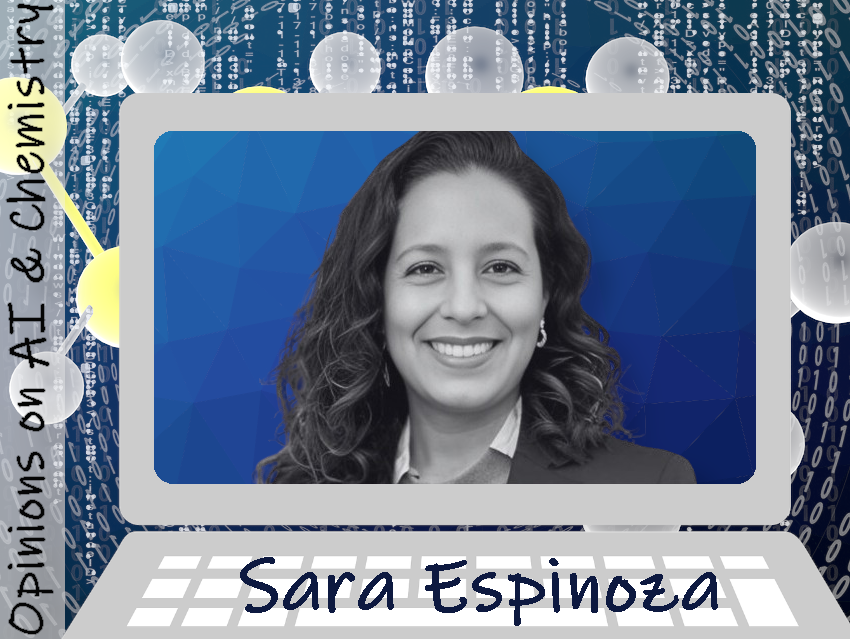The intersection of chemistry and artificial intelligence (AI) is a fascinating area that attracts a lot of attention in both research and industry. We talked to people working in the field about the potential of AI to revolutionize chemical research, but also about concerns, (current) limitations, and ethical implications for chemical applications. We also asked for ideas to try or experiment with, as well as useful articles and videos for beginners and advanced users.
Dr. Sara Espinoza, DECHEMA e.V., Frankfurt, Germany, works in the field of research data management and research administration.
What fascinates you about AI?
AI is able to learn from data, adapt to new and unforeseen scenarios, and make informed decisions. Unlike traditional models that follow rigidly predefined steps, AI applies learnt patterns dynamically to deal with complex, uncertain situations. For me, this adaptability, coupled with the ability to quickly process and analyze large amounts of data, significantly accelerates the acquisition of knowledge—what once seemed impossible is now within reach. This breakthrough in processing speed and adaptability is fundamentally changing the boundaries of scientific and technological progress.
Is there anything we should fear?
While AI has enormous potential for positive impact, there are legitimate concerns that need to be addressed, particularly in terms of discrimination and bias. AI algorithms can inadvertently perpetuate biases present in their training datasets, leading to skewed and unfair outcomes. Therefore, it is important to address this challenge through robust ethical guidelines, regulatory frameworks, and a focus on responsible data collection and AI development.
Do you have something for our readers to try out or experiment with?
- Scribe
In the NFDI4Cat project, our key focus is on educating the next generation of catalyst scientists. Essential to this process is the development of clear, step-by-step instructional materials for various Research Data Management Tools. Scribe is an innovative platform that streamlines the creation of Standard Operating Procedures and training guides, enabling efficient knowledge transfer in a matter of minutes. - Nekton.ai
In my role as project coordinator of NFDI4Cat, I encounter numerous tasks that lend themselves well to automation. Nekton.ai is a tool designed to streamline these processes. It employs advanced AI algorithms to automate routine tasks efficiently, thus freeing up valuable time for more complex and creative scientific work. This tool exemplifies the integration of AI in optimizing workflow within research management.
Can you recommend a good article for beginners and one you enjoyed recently?
I recommend “Good Data: An Optimist’s Guide to Our Digital Future” by Sam Gilbert. This book offers an insightful perspective on data, privacy, and AI, challenging common fears associated with these topics. Gilbert emphasizes the responsible and innovative use of data, moving beyond alarmist scenarios to explore how data can be harnessed for positive change.
Is there anything else you would like to share with readers of ChemistryViews?
AI is designed not as a replacement for human expertise but as a powerful tool to augment our capabilities. It is crucial for the scientific community to embrace the integration of AI into our workflows. By automating routine tasks and analyzing complex data sets more efficiently, AI allows us to allocate more time to critical thinking and innovation. Just as J.A.R.V.I.S. was an essential aid to Iron Man, enhancing his capabilities without overshadowing his role, AI in our laboratories and research can be a transformative ally.
Thank you very much for the insights.
back to overview “Opinions on AI & Chemistry”
Also of Interest

A. Förster and S. Espinoza, DECHEMA, discuss the goals and benefits of NFDI4Cat and the transformative impact of FAIR data sharing on catalysis research


